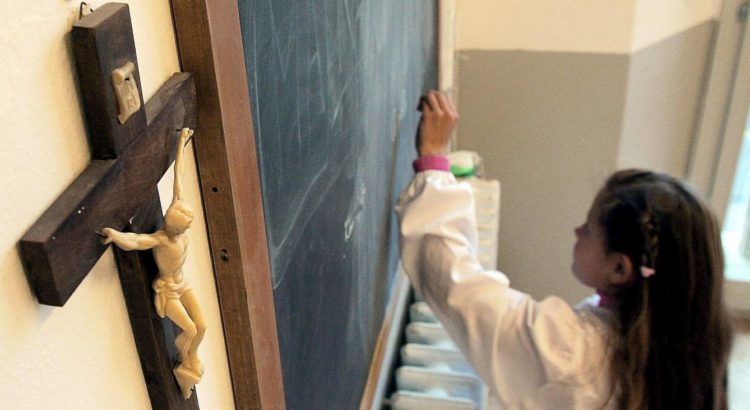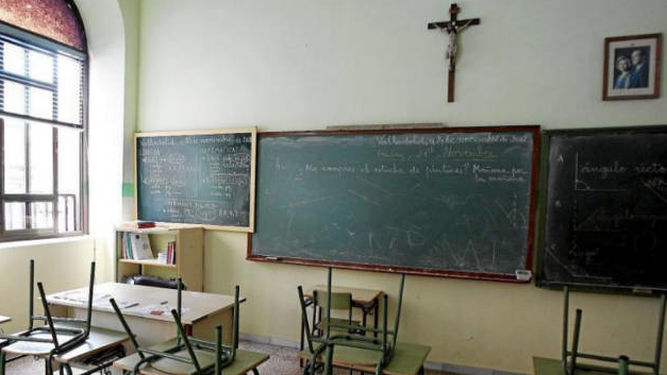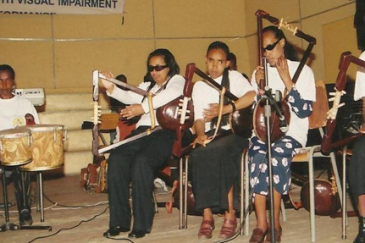Africa/Etiopia/Junio 2016/Autor: Elias Gebreselassie/ Fuente: musicinafrica.net
Resumen: La educación musical en Etiopía generalmente se remonta 1500 años a los tiempos de San Yared, un músico legendario a quien se le atribuye la invención de la sagrada tradición de la música de la iglesia ortodoxa etíope, Educación musical de Iglesia era diferente de la educación musical de hoy en día; los estudiantes sólo aprenden melodías específicas, las notas y los gestos.
Music education in Ethiopia can generally be traced back 1500 years to the times of Saint Yared, a legendary musician credited with inventing the sacred music tradition of the Ethiopian Orthodox church. Church music education was different from today’s music education; students only learned specific melodies, notes and gestures.
According to Dawit Yifru, President of the Ethiopian Musicians Association (EMA), the clerical musical establishment gradually gave way to a class of musicians called Azmaris. Although the Azmaris had little formal education in the traditional sense, they learnt and passed on the tradition from generation to generation. The tradition was loathed, however, for being associated with the lower classes and its practitioners were deemed drunkards, promiscuous or addicts, even though the masses loved watching them perform.
Yifru observes that the first form of formalized musical education in Ethiopia started during the times of Haile Selassie in the early 20th century, when he brought musical teachers and equipment from Czarist Russia to form a marching band[i].
It wasn’t until the late 1960s that the establishment of Ethiopia’s first musical school, the Yared School of Music, began with material assistance from Bulgaria. Around the same time, there were attempts to start musical education in elite schools, especially in Ethiopia’s capital Addis Ababa: institutions like the Emperor Menelik II, Teferi Mekonen School[ii] and Kokebe Atsebehe from the elementary level started formation of their own March bands.
Currently, one of the most respected musical institutions in Ethiopia is the Yared School of Music at the Addis Ababa University, which Armenian Kevork Nalbandian along with his Greek and Ethiopian colleagues founded in 1954. The Yared School of Music’s periodical of 1973 reads: “Two Armenians, Kevork (1924-1949) and Nersès Nalbandian (1930s-1977), were major forces in developing and nurturing modern Ethiopian band and orchestral music. Over the next 50 years, countless Ethiopian bands followed their same line-up and forged a stately brand of jazz-funk.”
These initiatives stopped after the overthrow of Emperor Haile Selassie in the 1974 revolution, with the new government deeming music education to be a burden on more formal academic courses. It didn’t get much better with the overthrow of the military regime in 1991, with Kebele (local municipal administration) groups being forced to disband.
Music education reborn
While musical education in Ethiopia may have dwindled over the last 40 years, a few stakeholders are today making spirited attempts to revive musical education. One of them is Selam Ethiopia, a non-governmental music organization with offices in Stockholm and Addis Ababa. Selam has been at the forefront of seeing that Ethiopian music education is put on the right course. In 2015, the organisation in collaboration with the Ethiopian government, the EMA and the Yared School of Music brought together various stakeholders to review the country’s music curriculum.
Chernet Mekuria, project coordinator for Selam Ethiopia, says his organization works mainly on developing cultural infrastructure to bring about a more dynamic society, for example organizing an annual music festival in Addis. It has been working on training and supporting youths, working with cultural forums and leadership, sound engineering and other projects with government institutions, private associations and individuals. “We’ve been working with the likes of the Yared Music School, the Ministry of Education[iii] and the Wusate Birhan Abera Music Training Centre for Visually Impaired to promote music education in Ethiopia,” says Mekuria, adding that a new curriculum incorporating music may be approved by late 2016 or 2017.
Desta Kassa from Ethiopia’s Ministry of Culture and Tourism (MoCT) says his ministry together with Yared and the Ministry of Education (MoE) have studied and prepared a document on the pedagogical benefits of musical education in the country. The MoCT is preparing to host a conference with 12 universities on further developing an Ethiopian music curriculum, to be held in the city of Bahir Dar later in 2016.
Kassa admits, however, the absence of enough competent manpower to impart knowledge at primary school level for now, but he explains that on a Technical and Vocational Educational Training (TVET) level, the ministry is preparing to have training in six musical fields. “We’re preparing competency assessment tools to the required agency under the Ministry of Education, with graduates being given the chance to have Centre of Competence (COC) test,” he says. He adds that it has also together with the Ethiopian Musicians Association started a pilot test with some schools in Addis Ababa to help organize some veteran music professionals to impart their knowledge to the youth.
TVET institutions in Entoto and Tigray have already started providing training modeled on the above method. Other TVET institutions like Kotebe and TMS, private educational training schools like Jazzamba Music School, and the Mekane Yesus School are other institutions giving musical education.
Wusate Berhan Abera Music Training Centre for Visually Impaired offers an accredited diploma for music education. The centre was established in April 2001. To date over 40 young men and women have graduated from the institution with diplomas and most have since been recruited to various government and non-governmental organizations. The institution offers training on kirar, masinko, traditional drums and playing in bands.
There are other music institutions in Ethiopia that offer music education, for example at bachelor (degree) level in Addis Ababa University and at a diploma level in Tigray and other regions. However, these do not satisfy the demand for music professionals. The recent launch of the Music Arts Department at Mekelle University (MU) at a bachelor level was therefore a timely step to meet the needs of stakeholders. It is hoped that the graduates of MU’s Department of Music Arts will help meet the demands for trained manpower in the sector. Wolkite and Bahir Dar Universities are also planning to start their own music education programs.
Embracing traditional instruments
While there are efforts to revive music education in Ethiopia, Mekuria from Selam Ethiopia cautions that interest in indigenous Ethiopian instruments should take precedence over European instruments. “With the music sector suffering from unfavorable views from society, partly as a result of lack of musical education at primary education level, those who go on to learn music prefer foreign musical instruments,” he says.
Mekuria attributes this preference, for example for the piano over the kirar (or masinko), to lack of awareness over the potential value of local instruments in modern music making. He also cites the general loss of knowledge of local proverbs, referred to as «gold and wax» lyrics, as a base for many songs, which he argues has been lost on the younger generation. This view is shared by Yifru, who says the prestigious Yared School does offer a minor course in Ethiopian traditional instruments, but graduates tend to drop these traditional instruments when pursuing their professional careers.
Despite these challenges, Mekuria sees positive results already emerging from teaching local musical instruments, for example at the Sisay Begena school[iv], which in addition to teaching is trying to standardize traditional musical instruments. This has reportedly helped to revive the harp, with the school even offering two month summer training on the likes of kirar and masinqo. «Unless you keep your heritage, identity and tradition, in time you may become a hopeless society,» says Mekuria. «We should take positive examples from the likes of Iranians and Israelites. Their way of life has been kept intact, even when they’re dispersed around the world.”
While agreeing with the above assertion, Yifru adds that while music education is important, there are supplementary needs if it is to succeed. Obstacles such as the difficulties for artsits getting bank loans, the lack of live music venues and inadequate copyright protection for aspiring musicians all need to be be addressed. “Private musical schools that are popping up in the capital are a positive sign, even though they’re a bit too pricey for most people,” says Yifru. «Musical talent shows like Ethiopian Idol should be welcomed, but at the end of the day for this to grow fruit, established venues have to nurture and hire the finalists of these talent shows.»
“Music isn’t just an extra; it’s good for academic achievement and to improve oneself. Our intention is to promote the positive side of music, how it can help other fields,” says Mekuria, adding that he hopes for music education to be incorporated into the general curriculum of Ethiopian schools within the next 15 years.
Fuente de la noticia: http://musicinafrica.net/music-education-ethiopia
Fuente de la imagen: http://musicinafrica.net/sites/default/files/styles/content_main_image/public/images/mia-articles/201603/tmpe7b6-large2.png?itok=DbFHSqzh










 Users Today : 7
Users Today : 7 Total Users : 35460216
Total Users : 35460216 Views Today : 10
Views Today : 10 Total views : 3418905
Total views : 3418905